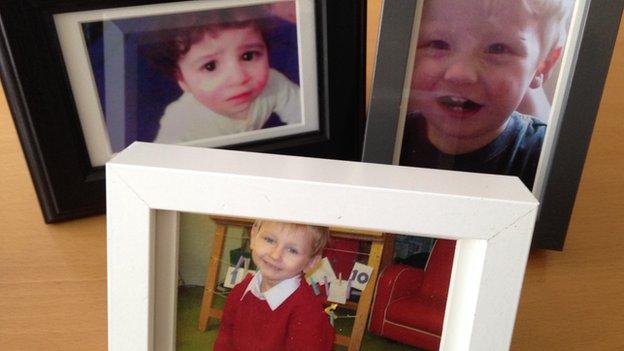Academics warn over child protection privatisation
- Published
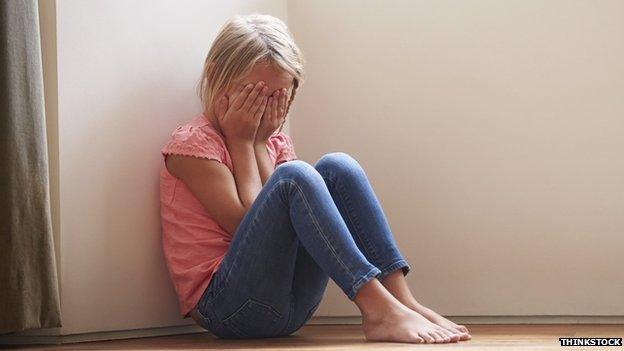
The academics said England had one of the most successful child protection systems in the world
A group of academics say they have serious concerns about proposals to let private contractors take over some child protection services in England.
Professor Ray Jones of Kingston University said child protection was too important to be handled by firms "driven by the profit motive".
He said any such move could be destabilising and cause "chaos".
Ministers said it was a consultation and local authorities would not be forced to employ outside organisations.
Prof Jones, who specialises in social work, was the leading signatory of a letter sent to the Guardian, external by the 37 academics, criticising companies that could be expected to bid for child protection contracts.
He told BBC Radio 4's Today programme that potential bidders such as G4S, Serco and Atos had performed poorly on several high-profile contracts, "won't be local [and] won't be focused on this as their core business".
He said this meant there would be a "lack of a strong focus on staying close to children and families".
"Child protection is much too important to get it destabilised in this way," Prof Jones said.
"We're opening this up to potential chaos."
Prof Jones also said contractors would "not be regulated or registered so they won't be required to be approved organisations".
The Department for Education rejected this, saying any arrangement would "be scrutinised by Ofsted as part of their inspection regime in exactly the same way as children's social services are inspected now".
Innovation
Prof Jones's comments followed a consultation launched by the Department for Education in light of problems dealing with failing children's services in Doncaster and Birmingham in particular.
Amanda Kelly, executive director of Impower, a public sector consultancy that has done work outsourced from social service departments, told the BBC the government was "trying to inject some innovation into a sector where it's needed".
She said a small number of local authorities had been performing badly and there was "a requirement to do something... quite quickly to address what is a long-term problem that has built up over many years".
In their letter, the academics said child protection should not be exposed to what they called the "fickleness and failings" of private organisations.
They wrote: "England has one of the most successful child protection systems in the world.
"This is based on strong accountability, stability, continuity, good local partnership working across professionals and agencies, and with experienced and committed professionals and leadership.
"The intention that private sector organisations such as G4S, Serco, Atos and others should be able to run child protection services causes considerable concern.
"Their track record elsewhere has hardly been unblemished in providing Olympics security, over-claiming payments for tagging offenders, misreporting on GP out-of hours contracts, and delaying and denying disability benefits."
Kathy Evans, chief executive of Children England, which represents more than 100 children's charities said: "What is of most concern here is the function of deciding whether a child is at risk, assessing the family and making recommendations to court, making decisions about how resources will be allocated to children on taxpayers' behalf.
"It's in that process where the profit-motive could really undermine whoever is trying to do that very difficult work."
Stability and continuity
A Department for Education spokeswoman said: "We want to improve the quality and efficiency of children's social care.
"Some councils are already using external expertise to improve their work, while others have asked us to extend these freedoms so that they can look at new, improved ways of delivering services.
"There will be no obligation for councils to take up these freedoms and any that do will still be held accountable by Ofsted.
"We will take into account all responses to the consultation before setting out next steps."
Prof Jones said a better answer was to provide "more resources for local councils".
"We need stability and continuity at the front line," he said.
- Published12 November 2013
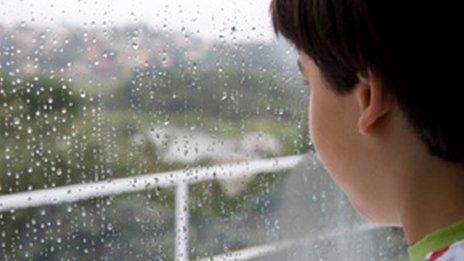
- Published3 May 2014
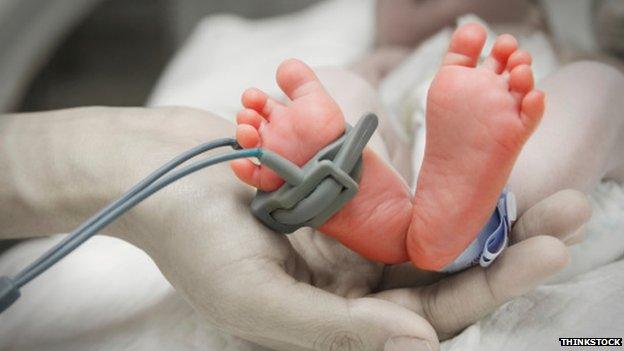
- Published8 May 2014

- Published4 May 2014
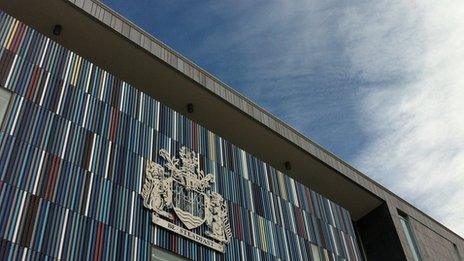
- Published31 March 2014

- Published26 March 2014
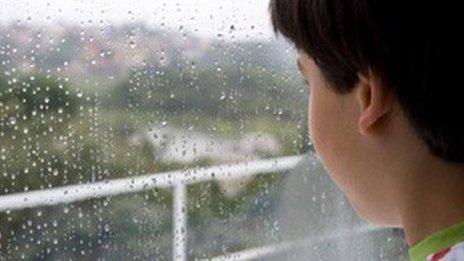
- Published25 March 2014
